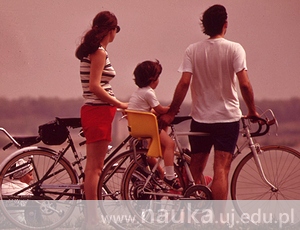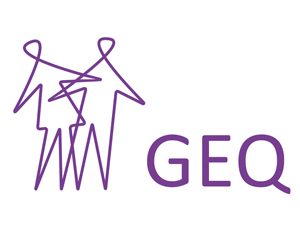
Research conducted by scientists from the Jagiellonian University in collaboration with the University of Oslo shows that gender equality in everyday life is an important issue for 80% of Poles.
The project Gender Equality and Quality of Life – How Gender Equality Can Contribute to Development in Europe. A Study of Poland and Norway (GEQ) covered various topics concerning gender equality awareness in the Polish society. Interviewees were asked about their opinion on gender equality and traditional gender roles, while the researchers took a close look at the practical application of their values in everyday life: household management, child care, career, participation in social and public life. They also paid close attention to distribution of both tangible and intangible goods between men and women.
 "The study was focused on the relationship between gender equality in childhood, family life and professional career, and quality of life and health. Cultural and institutional factors were also taken into account", said Anna Radecka from the JU Institute of Sociology, the project's coordinator. "The research conducted by the Polish-Norwegian team was related to various aspects of life, including sensitive ones, such as violence during childhood as well as intimate relationships". The study was carried out on a representative group of 1501 people, and supplemented by an analysis of data and social policies from Poland and Norway.
"The study was focused on the relationship between gender equality in childhood, family life and professional career, and quality of life and health. Cultural and institutional factors were also taken into account", said Anna Radecka from the JU Institute of Sociology, the project's coordinator. "The research conducted by the Polish-Norwegian team was related to various aspects of life, including sensitive ones, such as violence during childhood as well as intimate relationships". The study was carried out on a representative group of 1501 people, and supplemented by an analysis of data and social policies from Poland and Norway.
According to the results of the research, gender equality is important for 80% of Poles, while 87% of them believe it is important to instil these values in children.
Important interrelations
The research has shown that over 50% of Poles (men and women) were subjected to some form of physical abuse during their childhood. Such acts of violence were less likely to happen if the decisions about the child's upbringing were made by both parents or guardians. Over half of interviewees were spanked or otherwise physically punished in homes where only one of the parents made such decisions. In households with jointly made decisions, that number was twice as small.
Moreover, the study shows that being a victim of physical abuse in childhood increases the chance of physically abusing someone else in the adult years. It also adversely affects quality of life and health in the latter part of life.
Gender equality is an especially important aspect of family life, household management, and care for children and the handicapped. Although men are increasingly more active in this area, it is mostly women who are organisers of family life (63% women make decisions concerning meals as opposed to 4% men; 47% take care of the sick, disabled or elderly as opposed to 8% men).
Original text: www.nauka.uj.edu.pl





